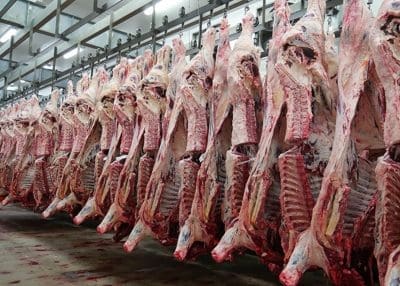A NEW method designed to reduce E. coli bacterial contamination on beef carcases is undergoing testing at JBS Australia’s Scone meat plant in New South Wales.
 A team of Tasmanian Institute of Agriculture food safety researchers is working with industry to develop a solution that will enhance food safety for the red meat processing sector.
A team of Tasmanian Institute of Agriculture food safety researchers is working with industry to develop a solution that will enhance food safety for the red meat processing sector.
Through laboratory and pilot trials in beef plants, researchers have found that spraying beef carcases with oxidants and water during refrigeration, in a process known as spray-chilling, causes significant reductions in E. coli numbers, while helping maintain carcase weight.
“Most types of E. coli are harmless, however pathogenic E. coli are a risk to public health so there is no tolerance for them in some export markets,” TIA research fellow Dr Jay Kocharunchitt said.
The trial builds on tests carried out earlier this year at the JBS abattoir near Longford, Tasmania, conducted as part of PhD student Zachary Block’s research into antimicrobial intervention, which aims to improve the safety of Australia’s red meat during processing.
“We are working with industry to ensure our research contributes to solving real problems, and with help from JBS at Scone, we are testing this method further,” Dr Kocharunchitt said.
In an earlier trial, microbiological data was captured that gave a baseline, which has been used to design the current trial at the Scone abattoir. This trial will clarify the next steps to develop the spray chill method for commercial use.
JBS group food safety quality assurance manager Michael Johnston said JBS had invested in new technology needed to carry out the collaborative two-month trial.
“We’re working with TIA to ensure we keep up with the latest in microbiological research and development, which is of benefit to the Australian red meat industry,” he said.
TIA is a Principal Research Organisation for Microbial Ecology and Physiology (PROMEP) and is a joint venture of the University of Tasmania and the Tasmanian Government.
The team’s research is being jointly administered and funded by AMPC and Meat & Livestock Australia.
